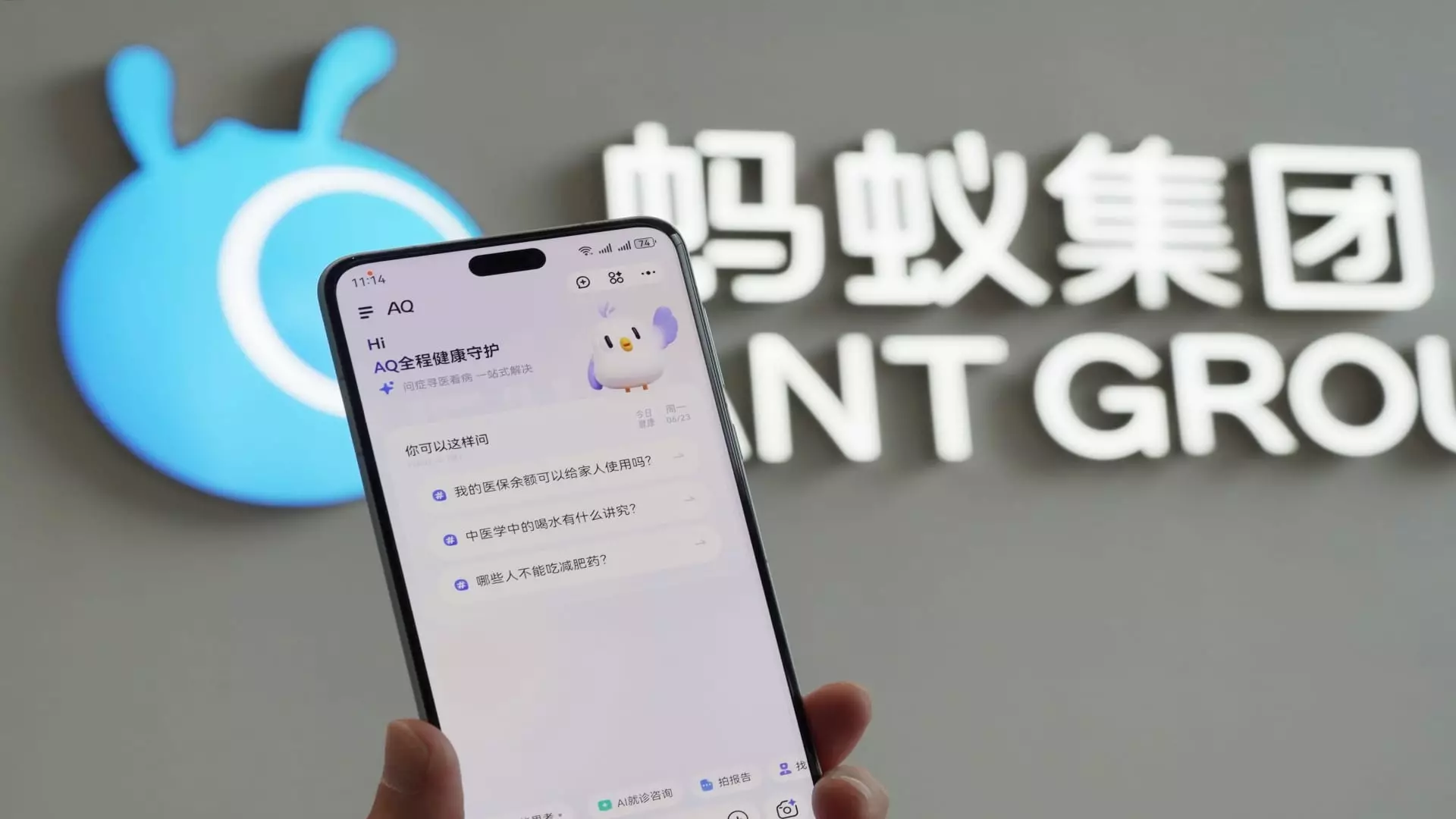Ant Group is once again making headlines as it boldly pivots towards health care with the launch of its new app, AQ, an initiative that exemplifies the rising influence of artificial intelligence in everyday lives. By fusing AI with healthcare solutions, Ant reinforces the notion that technology is evolving rapidly, and its applications can transcend merely facilitating daily tasks. This is a significant shift that deserves closer scrutiny. Centered around the philosophy of accessibility, AQ stands to redefine the traditional healthcare model, laying a foundation that is not only beneficial for users in China but poised to resonate globally.
The Strength of Innovation
Leveraging the immense data reservoir from its mobile payments arm, Alipay, Ant is stepping into fertile territory. The app connects users to a network of over 5,000 hospitals and nearly a million doctors, offering tailored consultations through AI avatars modeled after real medical specialists. This innovative system is not merely about convenience—it’s a radical strategy that strives to bridge the gap between the healthcare system and the patients it serves. However, it’s crucial to question the implications of such technologies. While AQ’s promise of swift diagnostic connections is enticing, does it adequately ensure quality of care? The dependence on AI-generated assessments may present unforeseen challenges that necessitate careful regulation and oversight.
Global Aspirations and Challenges
Ant’s vision of expanding AQ beyond China speaks volumes about its ambitions. The app’s ability to be adapted for international markets signifies a step towards global health equity. Nevertheless, this expansion is not without barriers. The ethical dilemmas surrounding patient data, the variability of healthcare regulations across countries, and questions about the efficacy of AI in different cultural contexts pose significant hurdles. As companies like Ant aim for global penetration, they must navigate a labyrinth of policy landscapes, adjusting their models to suit differing legal and ethical standards. For many observers, the question becomes whether Ant Group, despite its immense resources, can truly customize its offerings to meet the specific needs of diverse populations.
The Market Landscape: An Opportunity and a Risk
Amidst fierce competition from rivals like Tencent and Ping An Insurance, the launch of AQ signifies a pivotal moment in the healthcare tech race. The convergence of internet technology and healthcare is an arena ripe for disruption, with the mounting pressure to innovate pushing existing companies to either evolve or be left behind. Yet, the marketplace is inundated with AI health tools from global giants such as Microsoft and Amazon that have also turned their sights towards AI-enhanced health solutions. Unlike the West, where the adoption of tech-driven health solutions may be viewed with skepticism, China’s health sector appears to embrace digitalization wholeheartedly. However, this rapid adoption raises concerns about the potential for data misuse and the erosion of patient privacy, inviting scrutiny from both local and international stakeholders.
Societal Implications: Access, Equity, and Trust
As Ant Group invigorates the health tech scene, the social implications of such innovations cannot be understated. The promise of improved access to healthcare is commendable, yet we must critically examine who stands to benefit the most from applications like AQ. While the app may streamline encounters with the healthcare system for urban dwellers, will it do the same for rural populations who might lack digital literacy or access to smartphones? The equity of care will be a decisive factor in determining AQ’s success; a failure to ensure that all demographics are considered could perpetuate existing disparities rather than alleviate them.
Moreover, the trust required from users to rely on AI for medical consultations hinges on transparency. Will users understand the limits of AI, and will they feel secure sharing sensitive health information? Building trust will not just be a challenge for Ant Group; it’s a shared responsibility across the tech and healthcare sectors as they navigate the complexities of this brave new world.
As Ant Group journeys into the health tech frontier, the stakes are high. Their innovative approach has the potential to break barriers, yet a careful balance of ambition and ethical considerations will ultimately dictate the broader impact on societies at large.

